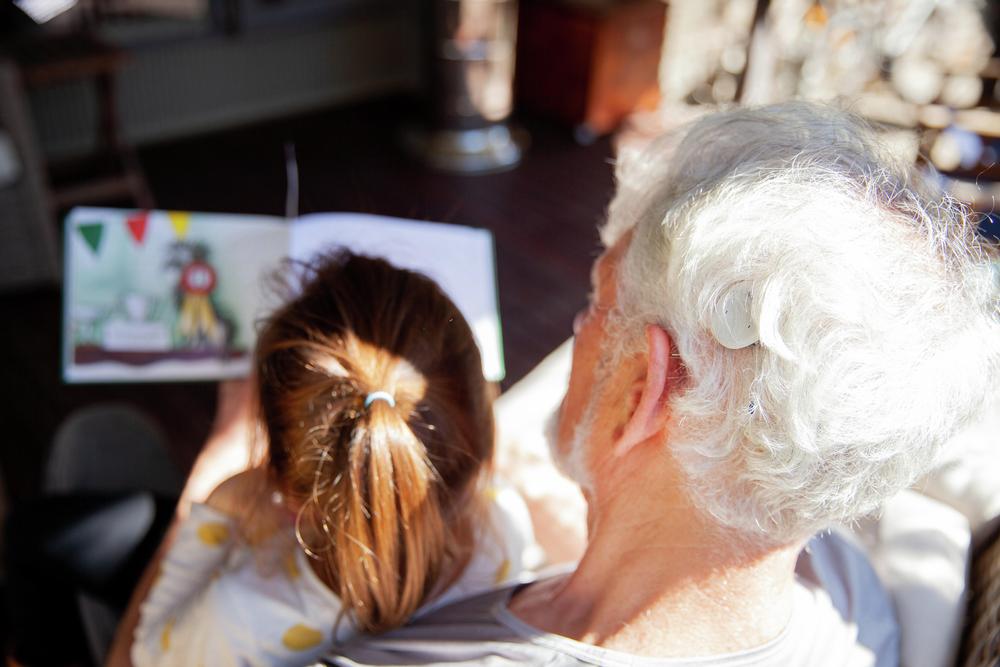Recovery from bone conduction implant surgery
Learn about caring for yourself or a loved one after surgery and find out what to expect during recovery.

What you'll find on this page
- Information about your procedure.
- How to care for yourself or your loved one after surgery.
- When you can expect to return to work and other activities.
Preparing yourself for surgery
As your surgery approaches, it's quite common to experience a range of emotions. The surgery is a common, outpatient procedure that may take as little as 20 minutes.1
Understanding what to expect and how best to recover from surgery will help give you confidence as you look forward to life with your new hearing.
After your procedure
After bone conduction implant surgery, medical staff will apply a bandage to protect the incision.
You will likely have a bandage after surgery for a day or two. You’ll get instructions on how to care for the implant site after the bandage is removed depending on your system.
It’s important to follow your doctor's instructions regarding rest and recovery after bone conduction implant surgery.
How to care for yourself or your loved one after surgery
Recovering from your surgery is generally straightforward, but it will take time. Support from family and friends is important as you prepare for life with your new hearing.
Here are some tips to help you recover
- Follow your doctor’s instructions and take medication as directed.
- Arrange for someone to take you home from hospital as you won’t be able to drive.
- Ask a friend or family member to help you for a day after your surgery so you can recuperate.
- You should be able to shower and wash your hair one week after surgery, as instructed by your doctor, being careful to keep water out of your ear.
- Eat a healthy diet and drink lots of water to promote healing.
How long does it take to recover?
Your surgeon will want your incision to heal before you are fitted with your sound processor and it’s programmed for the first time. Your hearing health professional will advise you how much time you’ll need to recover before the fitting.
Many people return to work or normal activities within a few days after surgery, but you may want to give yourself at least a week to recover.
Your doctor will tell you when it’s safe to return to your activities. Most doctors advise against lifting even moderately heavy weights for some time after surgery.

Disclaimer
Please seek advice from your health professional about treatments for hearing loss. Outcomes may vary, and your health professional will advise you about the factors which could affect your outcome. Always follow the directions for use. Not all products are available in all countries. Please contact your local Cochlear representative for product information.
For a full list of Cochlear’s trademarks, please visit our Terms of Use page.
In Australia, Cochlear™ Nucleus® implant systems are intended for the treatment of moderately severe to profound hearing loss.
In Australia, Baha® bone conduction implant systems are intended for the treatment of moderate to profound hearing loss.
In Australia, the Cochlear™ Osia® System is indicated for patients with conductive, mixed hearing loss and single-sided sensorineural deafness (SSD) aged 5 years and above with up to 55 decibels sensorineural hearing loss. Patients should have sufficient bone quality and quantity to support successful implant placement. Surgery is required to use this product. Any surgical procedure carries risk.
For Cochlear™ Nucleus®, Osia® and Baha® systems: This product is not available for purchase by the general public. For information on funding and reimbursement please contact your health care professional.
Any testimonial featured on this website is intended for an Australian audience only.
Reference
- de Wolf MJ, Hol MK, Huygen PL, Mylanus EA, Cremers CW. Clinical outcome of the simplified surgical technique for BAHA implantation. Otol Neurotol. 2008;29(8):1100‐1108.





